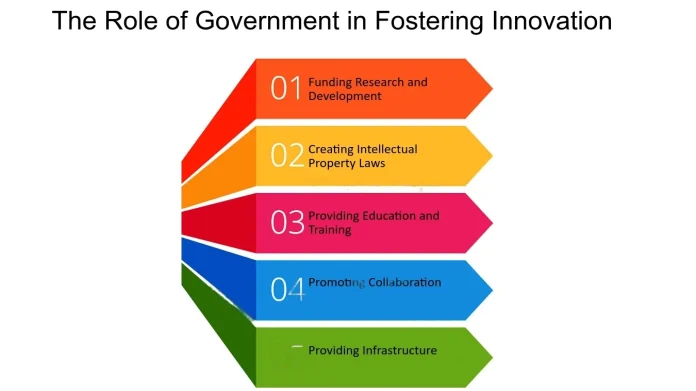When it comes to economics, there is a concept of Good Governance that holds significant weight. Generally, it acts as a cornerstone to ensure equitable distribution of resources, promote stability, and foster sustainable economic growth.
Even it comes with a set of practices and principles that act as a guide within the governmental and non-governmental institutions. Well, keep reading as we’re going to talk about the critical role played by good governance to drive economic growth.
Role of Good Governance in Fostering Economic Growth
Promote Efficient Resource Allocation
Efficient public institutions and transparent regulatory frameworks are two of the hallmarks of good governance. Moreover, the reduction of bureaucratic hurdles and streamlined processes can create an environment conducive to investment and business development.
With contract enforcement mechanisms and clear property rights, we can expect security and certainty for investors. Thus, it encourages innovation, economic efficiency, and entrepreneurship.
Attract Foreign Direct Investment (FDI)
Countries with strong governance frameworks can easily attract higher levels of FDI. Furthermore, through sound fiscal management, effective regulatory oversight, and transparent governance practices, foreign investors gain confidence in their investments.
This means that their investment is protected, and they can operate in a predictable and stable business environment. Additionally, FDI inflows bring in expertise, technology, and capital to create jobs, foster knowledge transfer, and stimulate economic growth.
Promote Inclusive Growth
Considered crucial in promoting inclusive growth, good governance ensures that decision-making processes are participatory and distribute the benefits of economic development equitably.
With the aid of transparent governance practices, citizens can voice their concerns, hold decision-makers accountable, and participate in decision-making processes. Additionally, social inclusion programs can aid in alleviating poverty, creating opportunities, and reducing inequality among citizens to benefit from economic growth.
Enhance Investor Confidence
Good governance instills confidence among investors, which can foster economic growth. Accountable and transparent governance allows integrity and stability within the economic and political system.
It reassures investors that their investment is protected and that they can expect a fair return. Such kind of confidence attracts both foreign and domestic investment to fuel growth and stimulate economic activity.
Facilitate Infrastructure Development
When considering infrastructure development, it is important to note that it plays a critical role in economic growth. Effective public-private partnerships and transparent decision-making processes ensure that infrastructure projects are executed, financed, and planned efficiently.
There is a need for well-maintained infrastructure comprising communication systems, utilities, and transportation networks. It can improve access to the market, boost productivity, and reduce transaction costs and thus, drive economic development.
Mitigate Corruption and Improving the Business Environment
Corruption is a significant barrier to the growth and development of the economy, but good governance can mitigate it. With accountability and transparency mechanisms, public resources are allocated efficiently to address corruption swiftly.
If there is a predictable and clean business environment, it can encourage entrepreneurship, promote healthy competition, and foster investor confidence. Therefore, all of these things are essential to drive economic growth.
Challenges and Solutions
Weak Institutional Capacity
Challenge: Some countries face challenges linked to weak institutional capacities like limited human resources, inefficient public administration systems, and inadequate infrastructure. Such factors impede effective governance mechanisms implementation and hinder the development of the economy.
Solution: It would be better to invest in building institutional capacity through institutional reforms, capacity-building initiatives, and targeted training programs. Improvement in infrastructure, enhancement of government officials’ skills, and strengthening of public administration systems can foster economic growth.
Inequality and Social Exclusion
Challenge: Inequality and social exclusion are enough to pose challenges for inclusive economic growth. Whenever certain groups get excluded from opportunities and marginalized, it can hamper their ability to benefit and contribute to economic development.
Solution: Try to implement programs and policies aimed to promote social inclusion and reduce inequality by addressing disparities in access to economic opportunities. Make sure that governance frameworks prioritize inclusivity and equity. Also, with mechanisms in place for promoting equal access to opportunities and addressing the needs of marginalized communities.
Corruption and Lack of Transparency
Challenge: Corruption can erode trust in institutions and undermine good governance, which can hinder economic growth. Due to a lack of transparency in resource allocation and decision-making processes, there are cases of mismanagement and inefficiencies of public resources.
Solution: The best way is just implement anti-corruption measures like enforcing strict penalties for corrupt practices, establishing independent oversight bodies, and strengthening accountability and transparency mechanisms. Moreover, promotes a culture of transparency through citizen engagement and open data initiatives to reduce corruption and boost accountability.
Political Instability and Governance Uncertainty
Challenge: When there is governance uncertainty and political instability, then there are chances of undermining economic growth, deterring inventions, and environment of unpredictability. Such kind of challenge is the result of a lack of continuity in governance frameworks, frequent changes in government policies, and weak rule of law.
Solution: Uphold the principles of constitutionalism, protect property rights, and independent judiciary to strengthen the rule of law. Political stability can be promoted through inclusive governance processes and consensus-building among diverse stakeholders. At last, establish consistent and clear policies for providing stability and certainty for businesses and investors.
Conclusion
In conclusion, good governance stands as a linchpin in fostering economic development and growth. Civil society, businesses, policymakers, and platforms like bureaucrats india must collaborate to strengthen governance systems, ensuring they serve the best interests of citizens both now and in the future. By promoting transparency, accountability, inclusivity, and stability, nations can overcome challenges, attract investments, and create environments conducive to sustainable economic progress. Through continuous efforts to address weaknesses, implement reforms, and uphold the rule of law, countries can realize their full potential and provide opportunities for prosperity for all.








